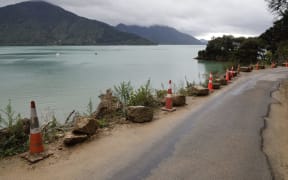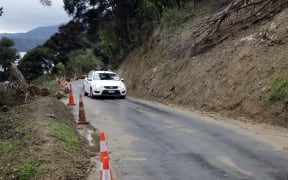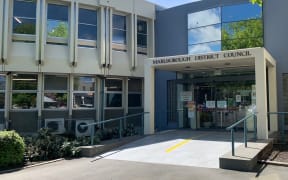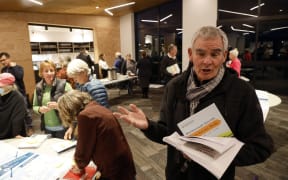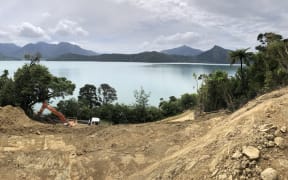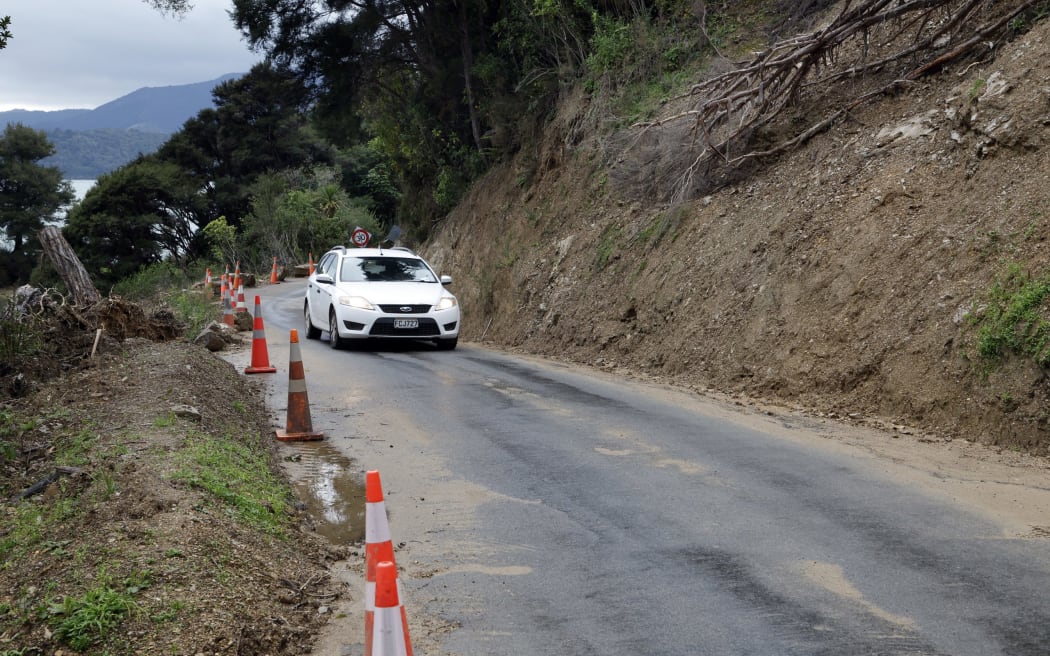
Repairs to the Marlborough Sounds roading network are expected to cost ratepayers $106 million over a 25-year period. Photo: Stuff / LDR
The Marlborough District Council is proposing a 70/30 split for paying to fix flood-damaged roads in the Sounds.
That's 70 (or 71 percent to be exact) falling on Marlborough ratepayers and 30 (or 29 percent) falling on Marlborough Sounds property owners.
The council believes this is the fairest way to split the cost given the much smaller number of properties in the Sounds, compared to the rest of Marlborough.
The 70/30 split still means people in the Sounds will be lumped with much higher rates bills.

Going off this preferred option, people (930 properties) in the Kenepuru, possibly the worst hit in the 2021 and 2022 floods, would pay an extra $206 on average on top of their rates in 2025-26. They would be paying an extra $1290 by 2034.
Non-Sounds residents (22,297 properties) would pay about $40 on top of their rates in 2025-26. By 2034, this would be an extra $259.
The council's preferred 70/30 split still had to go out for public consultation though. It would go out to the public along with the wider draft Long Term Plan, which the council signed off on Monday, from 4 April.
The proposed rates rise for the district landed on 12.65 percent.
The biggest piece of work in the Long Term Plan was the Marlborough Sounds roads recovery, currently costed at $234m. It was expected to take about 20 years to complete. Of that, $106m was to be covered by ratepayers, with the New Zealand Transport Agency Waka Kotahi (NZTA) covering the rest.
Marlborough District Council chief executive Mark Wheeler told the council the cost of repairs or the amount of funding it received from NZTA could change over time.
"If they change in a year or two, when we get down into the detailed design, we will review those costs and the effects of those at that point," Wheeler said.
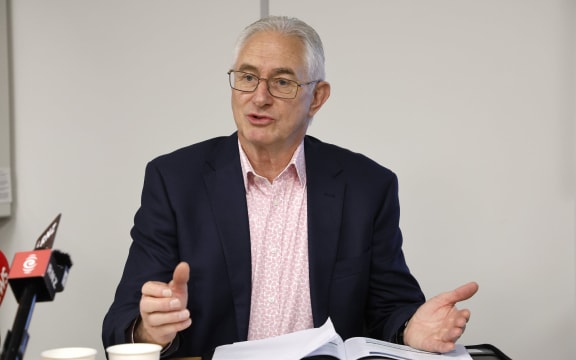
Marlborough District Council chief executive Mark Wheeler. Photo: Stuff / Marlborough Express / Anthony Phelps
It meant the amount of rates people paid over time could change, Wheeler said.
Five options would be put out for consultation. The other four were: do nothing, which meant NZTA would not release the funding; Split the cost across all of Marlborough evenly; Split the cost across the Sounds (excluding Picton and Havelock); Or split the cost across different zones within the Sounds.
The council's preferred option was to split the cost across different zones within the Sounds, and the rest of Marlborough would also contribute, although at a lesser rate per household.
Under that option, the zones would be defined as they were in Stantec's business case for the work.
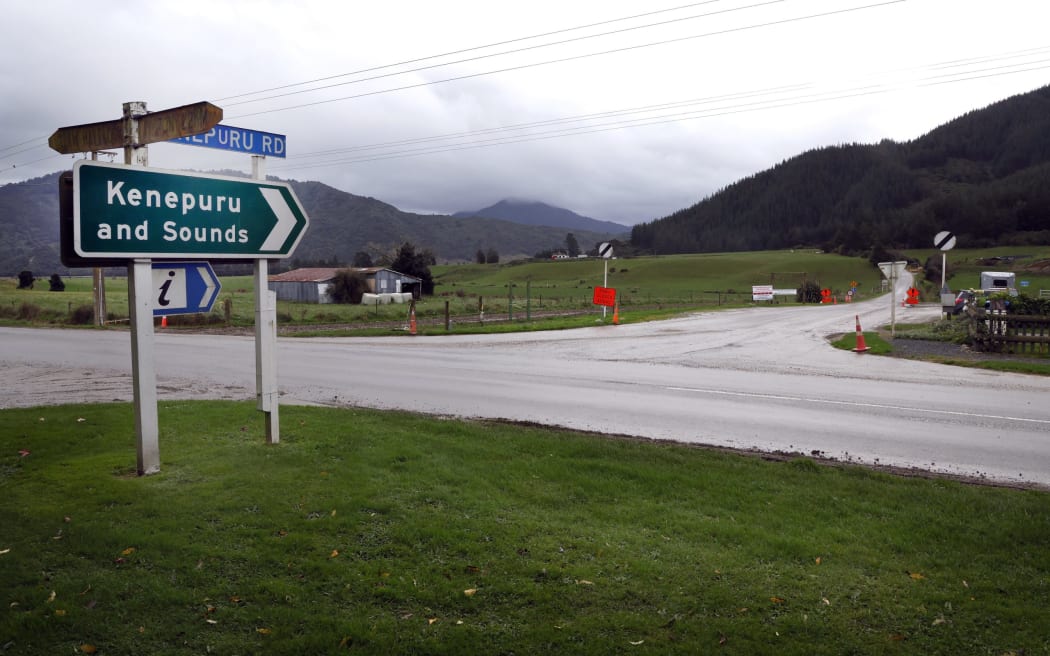
Kenepuru, in the Marlborough Sounds, has the largest repair build in Marlborough following flooding in 2021 and 2022. Photo: Stuff / LDR
Kenepuru ratepayers, where the most expensive repair bill had been identified, would pay more each year compared to other Marlborough Sounds zones and the rest of Marlborough.
Most of the repair bill would not be required until June 2025, by which point the council would have decided how it would split the repair bill.
This would significantly increase as repair work ramped up.
Marlborough Sounds ward councillor Ben Minehan said the biggest thing was to go out to the community and consult.
"We may get a lot of feedback to come back from the community," Minehan said.
"Someone has got to pay for the Sounds roads repairs, it's just a matter of who pays and how much."
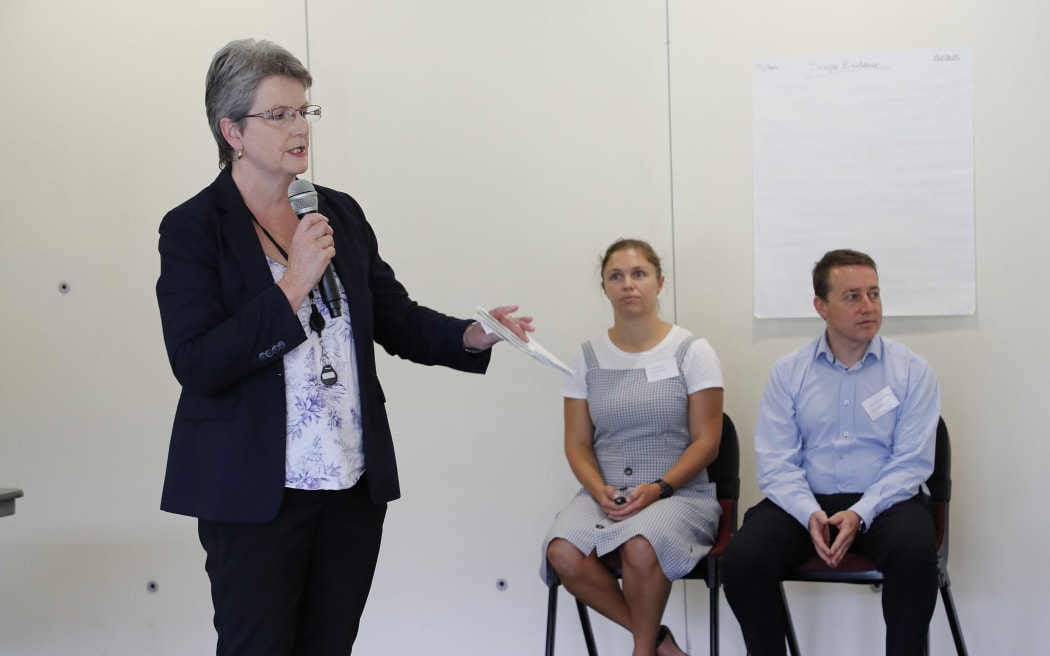
Marlborough Sounds ward councillor Barbara Faulls speaks to residents during a public meeting in Picton in 2023 about the Sounds road recovery Photo: Stuff / LDR
Marlborough Sounds ward councillor Barbara Faulls said she looked forward to consultation because the work needed to be moved forward.
"We have to get on with this," Faulls said.
Deputy mayor David Croad stressed to staff that they needed to highlight how the repair bill was being spread across ratepayers.
"Whilst we've got some weighting variability here, the community clearly needs to understand whose paying what percentage of the total amount of money," Croad said.
The Long Term Plan 2024/2034 would go out for public consultation from April 4 to May 6 and include public meetings and hearings, with dates and locations to be confirmed.
Preferred option: Splitting the repair bill
Average cost per ratepayer, on top of rates:
- Te Aumiti/French Pass (896 properties) $67.80 in 2025-26; $524.38 by 2034
- Te Hoiere/Pelorus (162 properties) $34.80 in 2025-26; $331.26 by 2034
- Tōtaranui/Queen Charlotte (712 properties) $45.43 in 2025-26; $346.10 by 2034
- Kenepuru (930 properties) $206.67 in 2025-26; $1291.24 by 2034
- Te Whanganui/Port Underwood (339 properties) $72.16 in 2025-26; $520.12 by 2034
- Sounds Rural with no road access (1451 properties) $22.53 in 2025-26; $153.35 by 2034
- Non-Sounds (22,297 properties) $38.07 in 2025-26; $259.15 by 2034
Other projects going out for consultation
- A&P Park pavilion ($3.7 million, expected to start in 2026)
- Riverside Park boardwalk and lighting system ($493,600)
- Stopbank repairs in Spring Creek ($8.7m)
- Taylor and lower Ōpaoa River dredging ($800,000 compared to the usual maintenance budget of $180,000 each year)
- New IT systems and websites for the Marlborough Museum and the Edwin Fox Museum ($198,000)
- Public toilets ($1.48m over 10 years)
- Marlborough Research Centre ($300,000 for 24-25 financial year)
LDR is local body journalism co-funded by RNZ and NZ On Air.
This story has been corrected. Under the council's preferred 70/30 split option, non-Sounds residents will pay an extra $259.15 in 2034, not $153.35 as stated in an earlier version of this story. (Amended February 28, 2024 at 9.25am)
